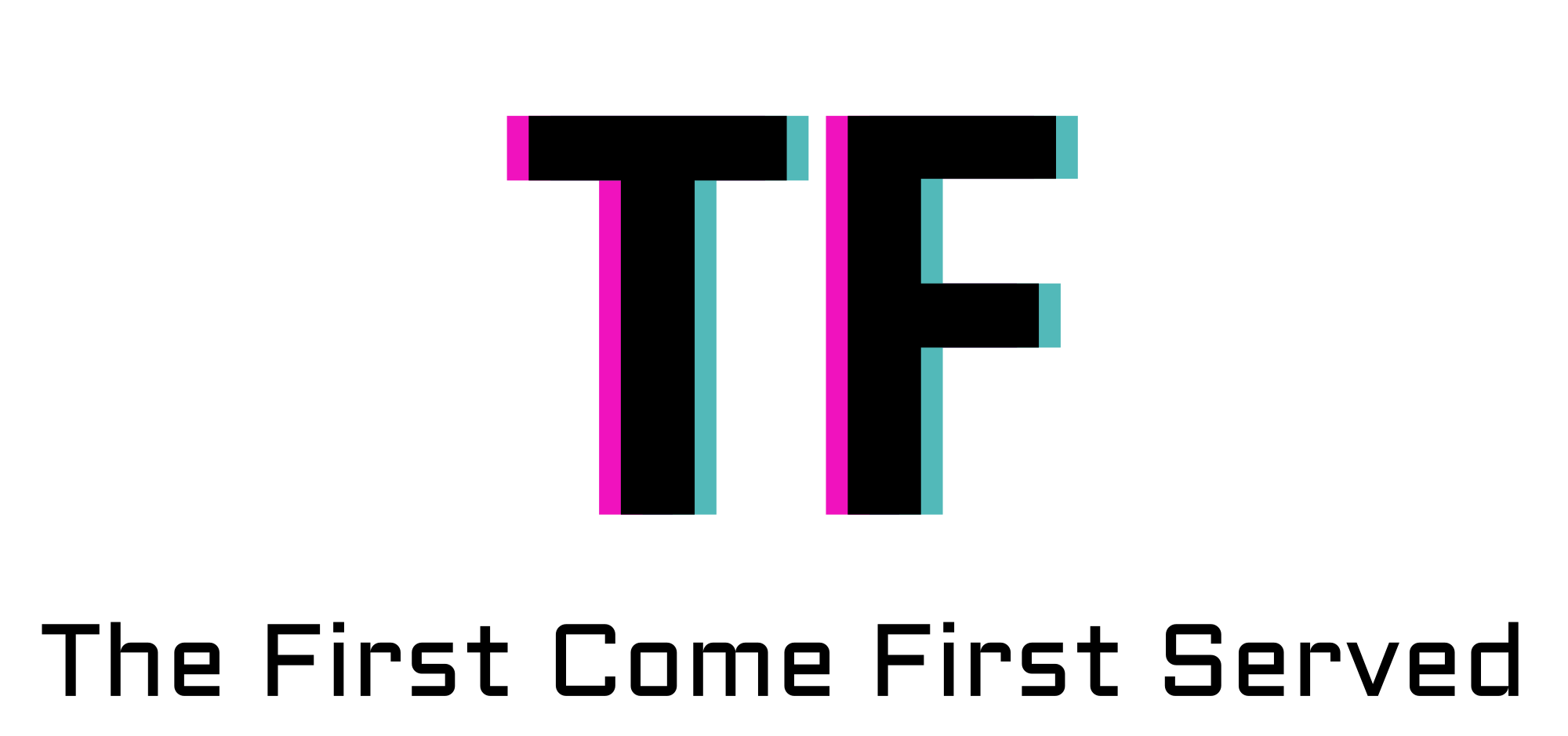Understanding Consent Culture In The Age Of #MeToo
The Evolution of Consent Culture
The concept of consent has undergone a significant transformation in recent years, particularly in the wake of high-profile allegations and the rise of social media campaigns like #MeToo. This shift towards greater awareness and discussion of power dynamics and healthy relationships has led to a growing recognition of the importance of obtaining enthusiastic and informed consent in all interactions.
This evolution of consent culture is a response to decades of marginalized voices and experiences being ignored, dismissed, or silenced, particularly those of women and minorities. As a result, the conversation around consent has expanded beyond its traditional focus on sex and intimacy to encompass a broader range of issues, including workplace harassment, bullying, and other forms of exploitation.
The new landscape of consent culture prioritizes mutual respect, boundaries, and communication over coercion or assumption. It acknowledges that power imbalances, privilege, and cultural norms can all impact an individual’s ability to give informed consent, and seeks to address these systemic issues through education, policy changes, and social change.
Key Principles of Consent Culture

In recent years, the conversation around consent has shifted from being an abstract concept to a vital aspect of our daily lives. As the world grapples with issues of power dynamics, privilege, and social responsibility, understanding consent culture has become increasingly important. With the rise of the #MeToo movement, there is a growing recognition that consent is not just a personal issue, but also a societal one – it’s about recognizing and respecting boundaries in all relationships, whether they are romantic, professional, or platonic.
The Foundations of a Healthy Relationship

The concept of consent culture has gained significant attention in recent years, particularly with the rise of the #MeToo movement. At its core, consent culture is about creating an environment where individuals feel empowered to make informed decisions about their bodies, boundaries, and relationships.
To establish a healthy relationship foundation, it’s essential to understand that consent is not just a one-time agreement but an ongoing process. This means being attentive to nonverbal cues, actively seeking clarification, and respecting the other person’s right to change their mind or withdraw consent at any time.

Another key principle of consent culture is communication. Open and honest dialogue allows individuals to express their desires, boundaries, and concerns, promoting mutual understanding and respect. This includes listening actively, asking for permission, and being receptive to feedback and rejection.
A fundamental aspect of consent culture is the recognition that power dynamics can impact an individual’s ability to provide informed consent. This means acknowledging the potential imbalances in relationships, such as those based on age, position of authority, or social status, and taking steps to mitigate them.
Furthermore, consent culture recognizes that coercion, manipulation, and gaslighting are not acceptable behaviors in any relationship. These tactics can erode trust, undermine autonomy, and create a toxic environment where individuals feel trapped or pressured into making decisions they’re not comfortable with.
By prioritizing mutual respect, open communication, and active listening, individuals can foster a culture of consent that encourages healthy relationships and promotes a sense of safety and empowerment. This, in turn, helps to break down systemic barriers that perpetuate sexual assault and harassment, creating a more equitable and just society for all.
Ultimately, a consent culture is not just about avoiding bad behavior; it’s about cultivating a societal mindset that values autonomy, agency, and the well-being of every individual. By embracing this approach, we can create a world where relationships are built on trust, respect, and mutual understanding, rather than power, manipulation, or coercion.
The Impact of #MeToo on Consent Culture
The rise of the #MeToo movement has profoundly impacted the cultural narrative around consent, forcing societal conversations and norms to shift towards prioritizing mutual respect and boundaries. As the world continues to grapple with issues of power dynamics, privilege, and accountability, the significance of consent culture in preventing harassment and assault cannot be overstated.
A Catalyst for Change and Awareness
The #MeToo movement has been a game-changer in the conversation around consent culture, bringing attention to a critical aspect of social interaction that was often overlooked or ignored. By shedding light on widespread instances of harassment and assault, the movement has sparked a global reckoning about what it means to be complicit in these behaviors and how we can create a culture that values and respects consent.
The impact of #MeToo on our collective understanding of consent cannot be overstated. It has forced many to confront their own biases, assumptions, and behaviors, leading to increased awareness and empathy towards survivors of sexual violence. The movement has also prompted companies, institutions, and governments to re-examine their policies and procedures, implementing new guidelines and protocols to prevent similar incidents from occurring in the future.
Moreover, #MeToo has highlighted the complexities and nuances of consent culture, revealing that it is not a one-size-fits-all issue. It has underscored the need for education, training, and awareness-raising efforts to equip individuals with the skills and knowledge necessary to navigate complex social situations and make informed decisions about their own boundaries and comfort levels.
Furthermore, #MeToo has served as a catalyst for change, inspiring grassroots movements and advocacy campaigns that aim to promote healthy relationships, prevent sexual violence, and support survivors. These efforts have led to significant advancements in legislation, policy, and practice, creating a cultural shift towards a more nuanced understanding of consent and its significance in preventing harm.
Ultimately, the #MeToo movement has demonstrated that consent culture is not just a moral imperative but also an economic one – as companies and institutions invest in their own cultures and policies to prevent misconduct and promote respect, they can reap long-term benefits for their bottom line. By fostering a culture of mutual respect and trust, we can create a world where everyone feels valued, empowered, and able to thrive.
Consent Culture in the Digital Age
In recent years, the conversation around consent has become increasingly prominent, especially with the rise of the #MeToo movement. This cultural shift acknowledges the power dynamics at play in relationships and interactions, highlighting the importance of obtaining enthusiastic and ongoing permission before engaging in any physical or intimate activity. As technology advances and social media platforms continue to evolve, understanding consent culture in the digital age has become essential for fostering a safe and respectful online environment.
The Rise of Online Misconduct and Harassment
The advent of technology has revolutionized the way we interact with each other, but it has also created new challenges in maintaining a healthy and respectful online community. One of the most significant concerns is the rise of online misconduct and harassment, which has become increasingly prevalent since the launch of the #MeToo movement.
Consent culture, which emphasizes the importance of enthusiastic and ongoing consent in all interactions, is more crucial than ever in this digital age. However, the lines between private and public spaces have become increasingly blurred, making it difficult to navigate what constitutes acceptable behavior online. The proliferation of social media platforms has created an environment where individuals can hide behind anonymous avatars and pseudonyms, emboldening some to engage in harassment and online abuse.
Moreover, the 24/7 nature of digital communication means that incidents of misconduct can escalate quickly, making it challenging for victims to report and seek support. The fear of reprisal, social exclusion, or being “doxxed” (having personal information made public) can deter individuals from speaking out, perpetuating a culture of silence and shame.
As the online landscape continues to evolve, it is essential to prioritize consent culture and create safe spaces for individuals to express themselves without fear of harassment or abuse. This requires a multifaceted approach that involves educators, policymakers, tech companies, and individuals working together to promote empathy, respect, and digital literacy.
In particular, social media platforms must take responsibility for policing their content and implementing effective reporting mechanisms that address online misconduct. Governments and regulatory bodies also need to establish clear laws and guidelines governing online behavior, holding perpetrators accountable for their actions.
Ultimately, creating a culture of consent online requires ongoing effort and commitment from all stakeholders. By working together, we can build a digital community that values respect, inclusivity, and empathy, where individuals feel safe to express themselves without fear of reprisal or abuse.
Navigating Power Dynamics and Privilege
The #MeToo movement has brought attention to the pervasive issue of power imbalance and privilege in language, sparking conversations about consent culture and its relevance in today’s society. However, the complexities of navigating these dynamics cannot be overstated. Power imbalances arise from a multitude of factors, including social status, cultural background, and linguistic preferences, which can lead to misunderstandings and miscommunications that may escalate into conflicts or harm. Recognizing and addressing these power imbalances is essential in cultivating a culture of mutual respect and understanding.
Understanding the Interplay of Power, Privilege, and Consent
Navigating power dynamics and privilege is crucial when it comes to understanding consent culture, particularly in today’s societal context marked by the #MeToo movement. Power dynamics refer to the unequal distribution of power and influence within social relationships, often resulting from systemic inequalities such as racism, sexism, homophobia, transphobia, ableism, and classism.

Privilege is a key concept in understanding power dynamics; it refers to the unearned benefits or advantages that individuals enjoy due to their group membership, such as being male, white, straight, able-bodied, or from a higher socio-economic background. Recognizing one’s own privilege can be difficult, but acknowledging its existence and impact on others is essential for creating a culture of respect and consent.
When discussing power dynamics, it’s essential to consider the interplay between power, privilege, and consent. Power can affect an individual’s ability to give informed consent, as those with more power may use it to coerce or manipulate others into engaging in unwanted activities. Privilege can also influence one’s perception of what constitutes acceptable behavior, often leading to a lack of awareness about the impact of their actions on others.
In order to build a culture of mutual respect and consent, it’s vital to address the ways in which power and privilege intersect with issues of consent. This involves creating spaces where individuals feel comfortable discussing their experiences and concerns without fear of judgment or retribution. Education and awareness-raising efforts can help individuals understand the complexities of power dynamics and privilege, empowering them to make informed decisions about their own bodies and boundaries.
Promoting Healthy Relationships and Communication
In recent years, the conversation around consent has taken center stage, particularly in the wake of the #MeToo movement. As we navigate this new landscape, it’s essential to prioritize promoting healthy relationships and communication that prioritize mutual respect, trust, and open dialogue. This includes understanding the complexities of power dynamics, boundary-setting, and the importance of active listening in fostering a culture of consent.
Fostering Open Conversations and Active Listening
The age-old adage “ask for consent” has become an integral part of modern dating and relationships, but what does it really mean to prioritize healthy relationships and effective communication? It begins with understanding that everyone has the right to their own boundaries, desires, and comfort levels in a relationship.
Effective communication is key to fostering open conversations about desire, intimacy, and physical contact. This means being proactive, not passive, and ensuring that all parties involved have given their enthusiastic consent before engaging in any intimate activity. It’s about creating a culture where boundaries are respected, discussed openly, and prioritized.
Active listening is an equally crucial aspect of promoting healthy relationships. This involves paying attention to the other person’s words, tone, and body language, and responding with empathy and understanding. It requires a willingness to slow down, breathe, and focus on the present moment, rather than rushing into physical or emotional intimacy.
Fostering open conversations and creating a safe space for discussion can also help prevent misunderstandings and hurt feelings in the long run. By prioritizing mutual respect, trust, and honesty, individuals can build strong, fulfilling relationships that are based on a deep understanding of each other’s needs and desires.
The Importance of Accountability and Support
The #MeToo movement has brought significant attention to the pervasive issue of consent culture, highlighting the need for accountability and support in our personal and professional lives. As we move forward from this momentous shift in societal consciousness, it’s essential to recognize that consent is not a one-time event, but rather an ongoing process that requires continuous education, awareness, and action. By fostering a culture that values respect, empathy, and open communication, we can create a society where individuals feel empowered to speak out against misconduct and support those who have been harmed.
Creating a Culture of Responsibility and Empowerment
In order to foster a society that values respect, equality, and justice, it is essential to cultivate an environment where individuals feel empowered to speak out against misconduct and hold others accountable for their actions.
A culture of accountability is built on the foundation of mutual support, where everyone feels safe sharing their experiences and concerns without fear of retaliation or judgment. This can only be achieved by creating a system that encourages open communication, empathy, and active listening.
Empowerment plays a crucial role in promoting a culture of responsibility, where individuals take ownership of their actions and acknowledge the impact they have on others. By fostering a sense of personal accountability, we can work together to prevent misconduct, address its effects, and create a more just and equitable society.
The consequences of a lack of accountability are far-reaching and devastating, from perpetuating systemic inequalities to damaging relationships and communities. In contrast, embracing accountability and support leads to a ripple effect of positive change, promoting personal growth, healing, and collective liberation.
Buy sex furniture and position enhancers for ultimate comfort at Peaches and Screams Shop Jopen Sex Toys for elegant and powerful pleasure at Peaches and Screams Discover bondage hoods and headgear for thrilling restraint play at Peaches and Screams Buy extra powerful vibrators for maximum satisfaction at Peaches and Screams Buy Liquid Silk for silky-smooth lubrication at Peaches and Screams Buy vibrating eggs at Peaches and Screams
C4YL MS Style and Grace Andrea McGinty Art Lace and Scotch
- Teaspooning Sex Position (& 4 Variations) - January 2, 2025
- Understanding Consent Culture In The Age Of #MeToo - December 19, 2024
Author
Related Posts
This ‘peegasm’ Orgasm ‘trick’ Is Actually Really Dangerous
Explore Kegel exercise products at Peaches and Screams Shop fashion stockings and tights for stylish and sexy legs at Peaches and Screams...
Read out allSouth Face Sex Position
Buy Black Level products for a daring, bold experience at Peaches and Screams Discover Bathmate products for enhanced performance at Peaches and...
Read out allConsensual Nonconsent Fetish: Exploring The Complexities Of Fantasy
Definition and Prevalence The realm of human desire and fantasy is vast and complex, encompassing a multitude of desires, interests, and passions...
Read out allCastration Fetish: Examining The Power Of Ultimate Control
The Origins and History of Castration Fetish The concept of castration fetish, also known as autoerotic asphyxia or self-castration, has been a...
Read out allBustier Lingerie For Extra Lift And Bedroom Drama
Design Features Bustier lingerie is a type of corset-style undergarment designed to provide extra support, lift, and a feminine silhouette. Characterized by...
Read out all
The Timeless Appeal Of Lace Lingerie For Romantic Nights
Timeless Elegance Lace lingerie has long been the epitome of romance and sensuality, evoking images of Victorian-era courtesans and fairytale princesses. From...
Read out all